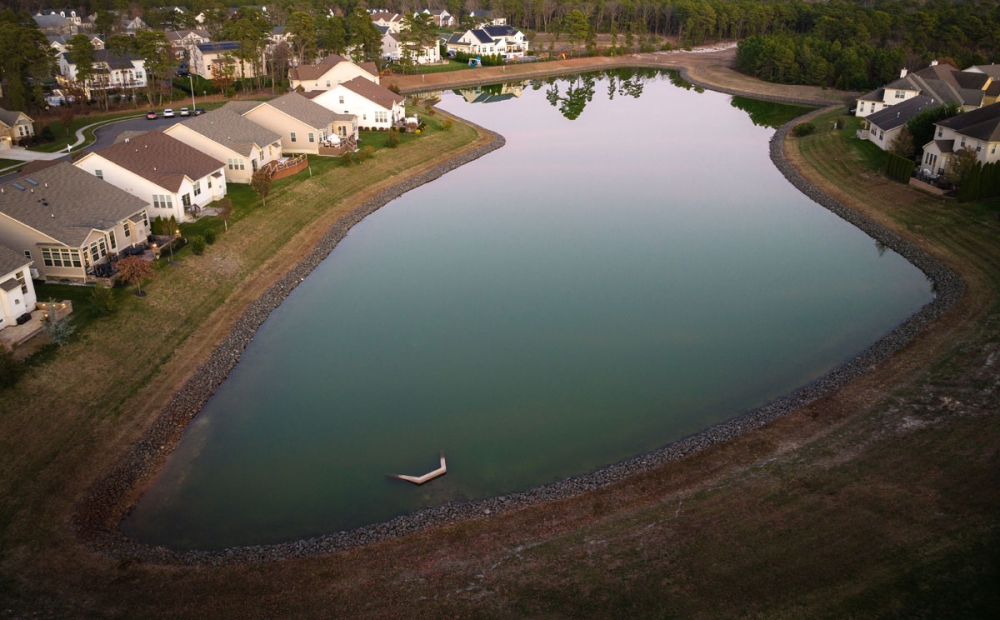
What exactly is an SWCD?
Created under state law in every state and most U.S. territories, nearly 3,000 locally led Soil and Water Conservation Districts now cover almost every county in the nation. Their boards, typically a mix of farmers, municipal officials, and at-large residents, design and deliver conservation programs tailored to local land and water issues. (nacdnet.org)
Protect soil and water resources through voluntary, incentive-based conservation.
Serve as a bridge between federal partners (chiefly USDA-NRCS) and local governments or landowners, bringing technical expertise, funding, and regulatory know-how to the ground level. (nrcs.usda.gov)
| Function | Why it Matters to Municipalities | Typical SWCD Deliverables |
|---|---|---|
| Erosion & Sediment Control | Construction runoff is one of the most common MS4 violations. | Plan review, site inspections, certified ESC training. (albanycountyny.gov) |
| Stormwater Management & Urban Drainage | Supports MS4 Minimum Control Measures (MCM) 3–6. | Rain-garden demos, rain-barrel programs, low-impact-development (LID) design advice, mapping of existing SMPs. (albanycountyny.gov) |
| Permitting Assistance | Developers and municipalities often need help assembling complete Stormwater Pollution Prevention Plans (SWPPPs). | Pre-application meetings, SWPPP checklists, sample model ordinance language. (dos.ny.gov) |
| Watershed & Stream Projects | Shared drainage issues rarely follow town lines. | Bank stabilization designs, flood-damage mitigation, grant administration. (albanycountyny.gov) |
| GIS & Data Services | Many small governments lack in-house GIS staff. | High-resolution aerials, soils layers, MS4 outfall and catch-basin mapping. (albanycountyny.gov) |
| Public Education & Outreach | Fulfills MS4 MCM 1 - 2; required annually. | School Envirothons, lawn-care BMP brochures referencing NPDES permits, staffed booths at fairs. (nacdnet.org) |
| Grant & Cost-Share Programs | Stretches local capital‐improvement dollars. | Writing/administration of Section 319(h), FEMA BRIC, or state stormwater grants; USDA EQIP cost share for green-infrastructure retrofits. (nrcs.usda.gov) |
Named MS4 “Partner Agency” – New York’s updated MS4 Toolbox explicitly lists County SWCD offices as resources municipalities can tap for plan development, IDDE training, and public outreach campaigns. (dec.ny.gov)
Construction MCM (4) – District technicians already teach the 4-hour ESC course accepted by many states and will attend pre-construction meetings to confirm BMP placement.
Post-Construction MCM (5) – Some districts offer annual O&M inspections of bioretention cells, ponds, and underground detention systems, delivering the documentation auditors look for.
Pollution-Prevention MCM (6) – “Good-housekeeping” audits of DPW yards, salt-sheds, vehicle-washing areas, and material-stockpile sites are routine district services.
Record-keeping – Because districts house NRCS conservation plans and local grant files, they can supply historic as-built drawings or nutrient-management logs when MS4 staff change.
Site-plan review – In many counties, the district is the mandated reviewer for erosion & sediment control plans on projects disturbing more than a threshold acreage.
SWPPP completeness checks – District staff pre-screen submissions so municipal staff avoid “ping-pong” revisions that burn hours.
Model ordinances – Sample stormwater, ESC, and illicit-discharge local laws prepared by districts or their state associations shave months off code-revision timelines. (dos.ny.gov)
SWCDs frequently administer, or know exactly when to pursue, funding pools that dovetail with municipal stormwater needs:
State non-point source grants (e.g., NYS WQIP, PA Growing Greener).
USDA EQIP Urban Conservation for green-infrastructure retrofits on public land.
EPA Section 319(h) watershed-based planning and implementation dollars.
Local stormwater coalitions – Shared SWCD staff can write regional grants that cover multiple MS4s, lowering match requirements. (dec.ny.gov)
Offers a rain-garden demonstration program, rain-barrel sales, and ESC workshops for contractors and code officers.
Maintains a county-wide natural-resources GIS with layers municipalities can plug directly into drainage-system maps. (albanycountyny.gov)
Find your district – The National Association of Conservation Districts hosts a searchable directory of every district nationwide. (nacdnet.org)
Schedule a joint MS4 kickoff meeting – Invite district staff to walk through your Stormwater Management Program (SWMP) and identify gaps they can fill.
Leverage board networks – District board members often sit on town or county committees; use those linkages to streamline approvals.
Bundle training – Share costs by opening contractor or DPW trainings to neighboring towns.
Keep them in the loop – Provide copies of annual MS4 reports and capital-plan drafts so the district can flag funding or technical resources early.
Soil & Water Conservation Districts were built to do exactly the things most small and mid-sized municipalities struggle with - hands-on stormwater management, cost-share hunting, and compliance documentation. Bringing them to the table can:
Cut permit-review time,
Reduce MS4 audit findings, and
Stretch limited public-works budgets.
Don’t reinvent the wheel. Invite your SWCD to the next stormwater or capital-planning meeting and turn a regulatory obligation into a collaborative advantage.
Read a brief history of Soil and Water Conservation Districts.

 Stormwater culverts come in a wide range of materials, and each type carries a unique combination of strength, lifespan, cost, and installation consid…
Stormwater culverts come in a wide range of materials, and each type carries a unique combination of strength, lifespan, cost, and installation consid…
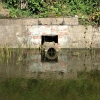 A well managed stormwater program depends on accurate and complete information about every outfall in a community. Outfalls are the final discharge po…
A well managed stormwater program depends on accurate and complete information about every outfall in a community. Outfalls are the final discharge po…
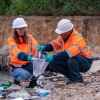 When crews encounter contaminated sediments during routine work, or when a concerned homeowner reports a suspicious odor or unusual discharge, the sit…
When crews encounter contaminated sediments during routine work, or when a concerned homeowner reports a suspicious odor or unusual discharge, the sit…
 Opening and entering drainage structures requires a practiced, methodical approach that protects workers from unseen dangers and ensures that every st…
Opening and entering drainage structures requires a practiced, methodical approach that protects workers from unseen dangers and ensures that every st…
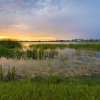 Constructed wetlands are engineered systems that mimic the natural processes of a real wetland in order to treat stormwater, wastewater, or other poll…
Constructed wetlands are engineered systems that mimic the natural processes of a real wetland in order to treat stormwater, wastewater, or other poll…
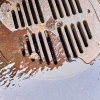 A complete and accurate stormwater map is one of the most important responsibilities for any community that operates as a Municipal Separate Storm Sew…
A complete and accurate stormwater map is one of the most important responsibilities for any community that operates as a Municipal Separate Storm Sew…